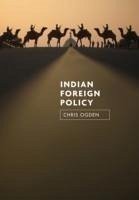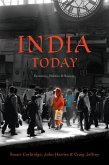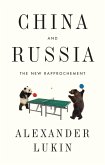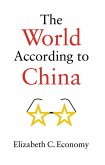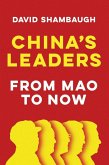Dieser Download kann aus rechtlichen Gründen nur mit Rechnungsadresse in A, B, BG, CY, CZ, D, DK, EW, E, FIN, F, GR, HR, H, IRL, I, LT, L, LR, M, NL, PL, P, R, S, SLO, SK ausgeliefert werden.
Sumit Ganguly, Indiana University
"Using four central themes as key to understanding the motivations of Indian elites in the realm of foreign policy, this lucid book provides a coherent narrative about the potential and challenges that confront India as it makes its way up the global interstate hierarchy. It is an important contribution not only to the study of Indian foreign policy but also to the way in which the subject is taught."
Harsh V. Pant, King's College London
"This is a valuable and much needed textbook that offers students of foreign policy an intelligent and balanced introduction to where India has been and where it might be going. It is up to date and contains helpful charts, tables, illustrations, maps and questions. It will prove a great aid in the classroom."
Rahul Sagar, Princeton University

